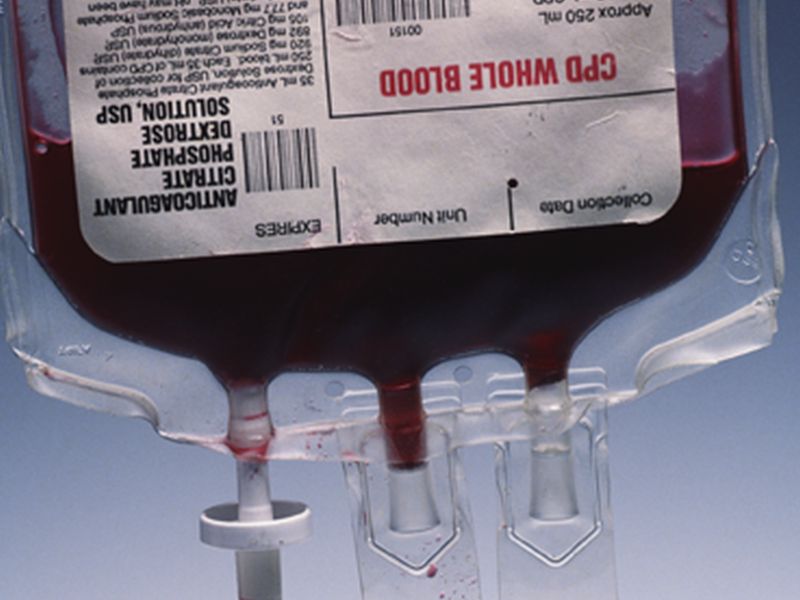

U.S. Should Reinforce Blood Supply: Report
New illnesses and financial pressures are potential threats, researchers say
Monday, November 28, 2016


MONDAY, Nov. 28, 2016 (HealthDay News) -- The U.S. blood supply system faces financial and other challenges that could lead to blood shortages in the future, a new report contends.
For now, however, the system continues to function well, the researchers said. In 2013, more than 14 million units of blood were collected from about 15.2 million people, and 13.2 million units were transfused.
But, increased federal government oversight of the blood system may be required to ensure an adequate blood supply and prevent blood shortages, according to the report from the RAND Corporation, a nonprofit research organization.
"The U.S. blood system operates effectively, but it is in a state of flux and uncertainty," Andrew Mulcahy, the report's lead author, said in a RAND news release.
"Financial pressures, changes in health care practice and technology, and the emergence of external threats such as the Zika virus are pressuring the system and may potentially threaten the available supply of blood. We need a better, more-efficient and more-sustainable system," he said.
Medical advances -- such as less-invasive surgeries and new drugs -- have reduced demand for blood over the past decade. But there has only been a slight decrease in the size of the blood collection and distribution system, the report said.
In addition, consolidation of hospital ownership has shifted negotiation power from blood centers to hospitals.
These factors have led to increased competition between blood centers, resulting in falling prices for blood and reducing blood centers' already low revenues. At the same time, technological advances and the threat of new pathogens, such as the Zika virus, are leading to new production and testing costs for blood suppliers, the researchers explained.
Another challenge is a shrinking number of active donors.
The short-term effects of these challenges could include the closing of many blood centers and blood product shortages. Consolidation of blood centers may be necessary and could lead to a stronger blood system, according to the report.
There are a number of steps the federal government should take to support the blood system, the report authors said, including gathering data about performance of the system, such as details about blood use and financial arrangements between blood centers and hospitals.
Also, the federal government should determine appropriate levels of "surge capacity" to respond to public health emergencies and subsidize blood centers to maintain that capacity. Also needed: developing connections with other participants in the blood system to create a blood safety net, the report concluded.
SOURCE: RAND Corporation, news release, Nov. 28, 2016
HealthDay
Copyright (c) 2016 HealthDay. All rights reserved.
News stories are provided by HealthDay and do not reflect the views of MedlinePlus, the National Library of Medicine, the National Institutes of Health, the U.S. Department of Health and Human Services, or federal policy.
- More Health News on:
- Blood Transfusion and Donation








































No hay comentarios:
Publicar un comentario